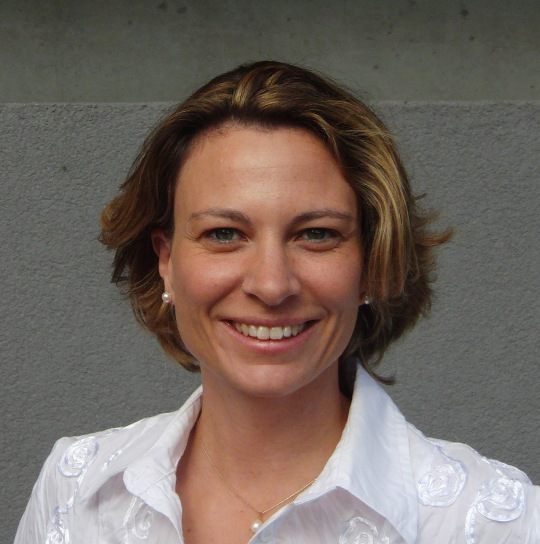
Tanja Wranik, PhD
Executive Education
Master of Science in Risk Management
Executive Program by the Stern School of Business and the Amsterdam Institute of
Finance
-
Organizational Design and Leadership (2012)
- This two day workshop examined human characteristics (personality, emotions, culture,
and values) that influence risk taking and demonstrated the importance of courage
and innovation in creating organizational structures that foster sustainable performance.
Participants critically examined the human ability to change and develop throughout
the life-span and learned how to influence and encourage those behaviors that are
necessary for intercultural collaboration.
Master of Advanced Studies (MAS) in Human Resources and Career Management - masrh.ch
Executive Training Program jointly run by the Business School and the Psychology
Departments at the Universities of Geneva, Lausanne, Neuchâtel, and Fribourg
-
Organizational Behavior (2006-present)
- This five day workshop covers topics such as personality, decision-making, status,
politics, leadership, and organizational culture. Participants learn a critical
and systemic approach to understanding behavior in organizations. At the end of
the course, students are asked to examine a specific behavior from the individuals,
group, organizational, and environmental level and to discuss the implications of
changing this behavior for their specific organization or institution.
-
Quality of Life at Work (2006-present)
- This three day course covers topics such as person-environment fit, work-life balance,
stress, burnout, bullying, mobbing, conflict, and anger management. We examine the
factors that can explain the health and well-being of employees, if and how employee
well-being is related to productivity, and to what degree managers and leaders should
take an active role in improving quality of life at work. At the end of the course,
participants write a proposal that should simultaneously improve quality of life
and productivity in their organization.
-
Executive and Business Coaching (2011-present)
- In this three day practical workshop, students are introduced to the major tools
of executive coaching and given a practical framework to help them choose the right
coach for their needs and organizations. Through group exercises and critical discussions,
we examine the advantages and disadvantages of different coaching approaches and
practice common coaching tools.
Certificate of Advanced Studies (CAS) in Entrepreneurship and Business Development
(University of Geneva -
entrepreneurship.unige.ch)
-
Influencing others (2012)
- This two day course covers emotional competence and the multiple ways of selling
ideas and creating visibility within the organization. We discuss interpersonal
negotiation, managing the boss, and how to create long term client relationships.
The ethical use of power and influence are the main message throughout the course.
-
Motivation and Employees Engagement (2011)
- This two day course covers leading theories and models to explain employee motivation
and engagement from economic and psychological perspectives. Participants examine
the advantages and limits of these models for different types of organizations and
employees and identify practical solutions that can be implemented under different
environmental constraints.
Master Level University Courses
Applied Psychology: Organizational Behavior (University of Geneva) (2008-2011)
Masters level course for psychologists that covers topics such as personality, emotions,
teamwork, status and politics, leadership, and organizational culture. Invited specialists
from industry provide case examples of how psychology can help managers and employees
become more effective.
Applied Psychology: Decision making (University of Geneva) (2008-2011)
Masters level course in which students are shown how research and theories from
psychology can be applied to decision making processes in organizational behavior,
human resources, management, economics, and marketing. Research and practice are
confronted throughout the course and critically discussed to determine possible
synergies and probable challenges.
Current Trends in Organizational Behavior (Fachhochschule Nordwestschweiz, Angewandte
Psychologie, Olten) (2010 – 2012)
Advanced workshop taught in English. Students learn to critically read recent empirical
research to understand decision-making, conflict, and politics when organizations
are faced with constant change. At the end of the course, students should understand
the advantages and limitations of empirical research for understanding behavior
at work.
Applied Psychology: Project management, group processes, and effective proposals
(University of Geneva) (2007)
This practical workshop taught students how to prepare and defend a concrete project
proposal to a company, in which client considerations and theoretical and empirical
psychology are balanced. Throughout the project planning and development phase,
student groups were coached on how to work in teams. The final project included
a written proposal with a budget as well as a proposal talk.
Personality and Social Processes (University of Bern) (2007)
Advanced psychology seminar taught in German. The seminar focused primarily on the
role of individual differences (personality, motivation, gender) for decision-making
and social relationships. Students read recent empirical research and discussed
the findings in small groups.
The Role of Individual Differences and Context Effects for Emotions (University
of Geneva) (2006-2008)
This practical workshop focused on the role of personality, culture, and context
for emotional process; taught students how to collect data via on-line questionnaires
and instruments; allowed them to analyze data to answer specific research questions;
and required them to present their ideas in public.
Emotional Intelligence or Emotional Competence? (University of Geneva) (2004)
This advanced seminar focused on the use and misuse of emotional intelligence research
to explaining and predicting behavior. Students learned to apply knowledge about
different emotional competencies to management, education, and clinical psychology.